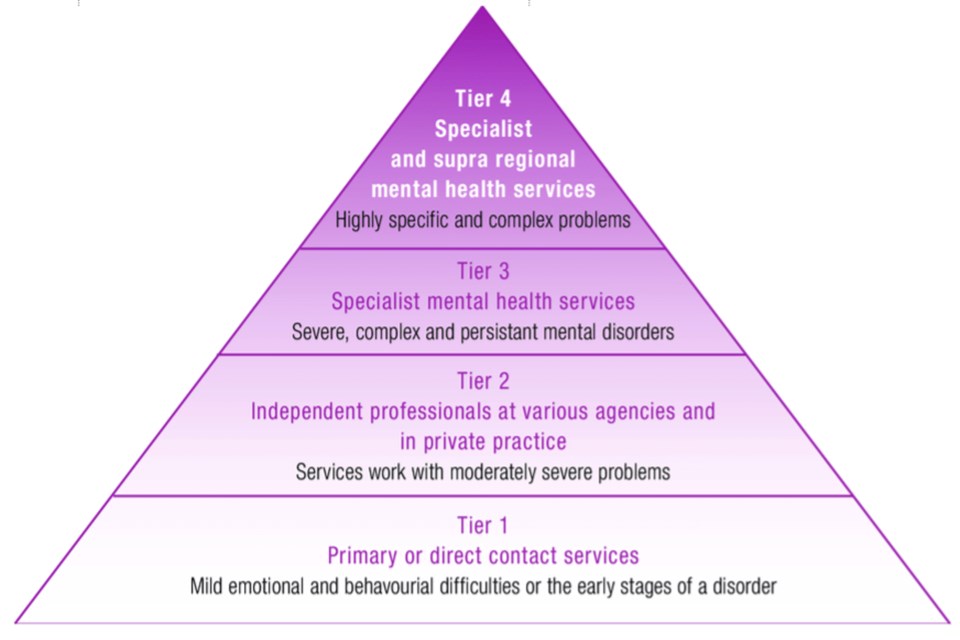ATHABASCA – What is a small-town municipal council to do when faced with a problem as monumental and staggering as providing the mental health services necessary to alleviate the suffering of those who struggle with their own minds every day.
It’s a question that has been on the minds of Athabasca town councillors for several months now, despite the reality that there is very little they can do, not only because it is an overarching societal issue larger than themselves as an entity, but because anything that can be done is far out of their jurisdiction and financial reach. They may have made a little progress though and found something that can be done on a local level.
Council’s June 7 regular meeting contained an apparent theme, with council members hearing from three individuals in two separate delegations — one that commented on the role their agencies play in offering mental health services in the region, while a second came from a familiar local critic of how those services are offered and delivered.
Athabasca resident and Canadian Forces veteran Martin Brousseau was the last delegation of three to present that night. He has been in regular contact with council members, not only via several in-person delegations, but through e-mails detailing his experiences with post-traumatic stress disorder, the struggles he faces accessing appropriate services, and how mental health, addictions and homelessness are all tied together. Of note, Brousseau has also taken it upon himself to house some of the community’s unhoused individuals in a home he is renting in town, calling his assistance of others a form of treatment for himself, as he continues to suffer from emotional breakdowns and struggles to find the professional treatment that’s right for him.
Is the Athabasca region really short on mental health and other services though, and are instances of mental health crises on the rise?
Debbie Wood, Athabasca’s Family and Community Support Services manager, and Laura Kuney, manager for Mental Health and Addictions in Athabasca, Boyle and Lac La Biche for Alberta Health Services, both commented on the many services that are available.
Wood’s information for council included nearly a dozen phone numbers for different mental health related groups and another half dozen or so other programs and services that are available at the touch of a button, noting that during the pandemic, many free, virtual services also became available online.
She also provided information on Alberta Supports, which also moved toward a more virtual model recently as a result of the pandemic, especially in rural areas. A lot of those clients turned to FCSS during that time.
FCSS chairs the interagency committee which now consists of more than 30 agencies and organizations that all play vital roles in improving the wellness of the community.
“The idea of FCSS is to be able to provide preventive services, but also to look at coordinating other services in the area to work closely with other groups,” Wood said. “We don't duplicate services, so we're not going to provide services that are provided by another agency or department, but we work together to look at what community issues there are and to help pull people together and provide information and support.”
She pointed to her delegation partner Kuney, who she called upon to join her when she received the invitation from council.
Kuney started by addressing recent concerns about the mental health intake process, which have not yet been implemented, and how it is moving to a phone-based centralized system. That’s not that big of a difference, she said, noting Athabasca calls are typically routed through Lac La Biche and now may go through Grande Prairie instead.
One of the changes that will occur though is that intake will be done during that first contact, whereas an appointment would have to be made previously.
“We do still have some in-person or more local walk-in options but we don't have the capacity to run a formal walk-in at the moment,” said Kuney, adding there are currently two mental health therapists and two addictions counsellors, while there are supposed to be four, but it has been tough to recruit, especially during the pandemic.
She concluded by saying the reasons behind mental illness and addictions are very complex, and the solutions will be as well.
“The reasons for these issues are complex; they are intergenerational; they are longstanding, and to expect one service to kind of fix it, quote, unquote, but the reality is it’s so complex and so will be the solution."
Coun. Jon LeMessurier said he appreciated the collaboration between the FCSS and the other organizations.
“I think we have to do that if we don't have the services, who else in the community can help provide that? It's a team approach and I appreciate the amount of programming that we have between both of you. I think that our community is extremely lucky to have that,” he said.
Prior to that, Athabasca RCMP detachment commander S/Sgt. Mark Hall was there to deliver his quarterly report, but also told council the five-year trend doesn’t necessarily show an increase in the number of mental health calls local RCMP members respond to every year, responding to a question he was unable to answer at the time from a previous meeting.
“Someone asked whether or not we saw an increase in mental health calls within the province or the mental health system when we went to a call-in system where they had to make appointments. We didn't,” said Hall. “I went back the last five years and we have not seen any increase in the number of mental health calls that we got.”
Brousseau has been before council two other times since late last year, requesting the municipality do more to address mental health needs in the community and suggested council organize a town hall focused on mental health concerns in the community. He also asked for support for his impromptu homeless program.
He sat through the two prior presentations before approaching council once more to suggest some kind of coffee therapy program that would match thoughtful community mentors willing to meet with those seeking someone to talk to. This would be done through a facilitator and a peer support group could also be formed to complement the program.
“The most important aspect here is having a mentor with clients to have coffee with them,” Brousseau said. “A lot of it has to do with building trust, because a lot of these people or clients don't trust anybody. I was there myself a year ago. A year ago, I still didn't trust anybody.”
Mayor Rob Balay commented it may be the most concrete thing Brousseau has requested in all his trips to council so far, and something council could actually work toward.
Coun. Edie Yuill wondered if there was some way to integrate the Together Talk counselling service that recently expanded into Athabasca into Brousseau’s idea of coffee chat with a mentor.
Coun. Jon LeMessurier said he had learned a lot from Wood and Kuney’s presentations and was encouraged to hear about everything that is available and asked Brousseau if he knew about the bevy of services the two women outlined.
“Possibly not a peer group but many services that I personally think you could possibly reach out to and then possibly some of these homeless people that you're doing your best to support right now,” LeMessurier said.
Brousseau responded that many programs are not advertised and there is still a lot to be desired.
“I maintain I shouldn't be made to look for services for years; for something that could actually help me. Going into the hospital, I shouldn't be made to reinvent the wheel, it should be provided,” he said.
After some discussion later in the meeting, council passed one motion to direct the mayor to contact Athabasca University’s Science Outreach program regarding the potential to have a neurologist present at a future session, as Brousseau had requested. A second motion to direct administration to send a letter to Don McGillivray at Together Talk regarding a potential peer support group was also passed.




